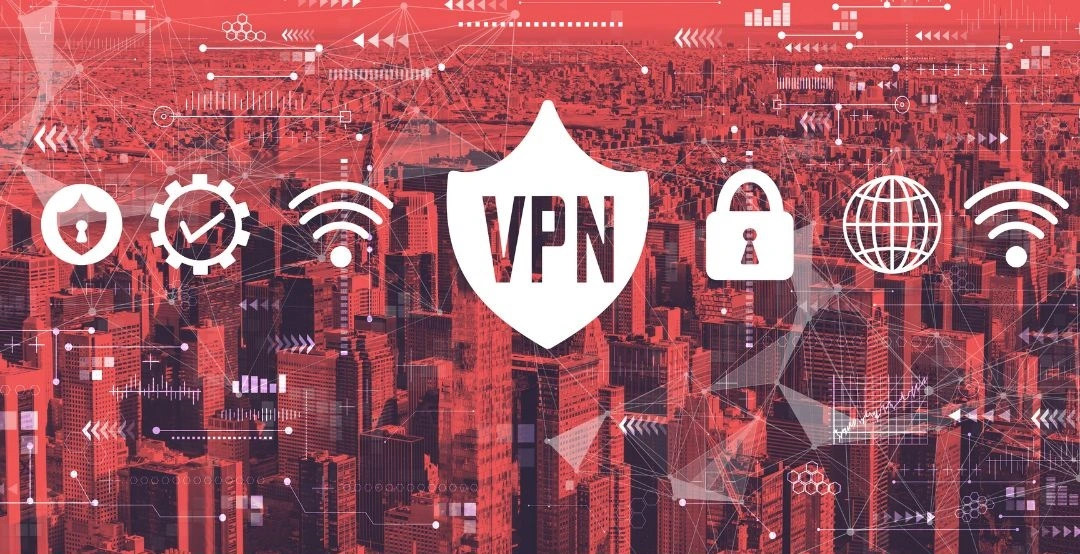In today’s digital world, protecting your online privacy and securing your internet connection are more important than ever. With cyber threats on the rise and concerns about data privacy growing, many people are turning to VPNs (Virtual Private Networks) to enhance their online security. But if you’re new to VPNs, you might be wondering: What exactly is a VPN, and how can I use it effectively?
This guide will walk you through how to use a VPN to ensure your internet browsing is secure and private. We’ll cover what a VPN is, how it works, and the key benefits of using one. Plus, we’ll share tips on choosing the best VPN service to meet your needs.
What is a VPN and How Does It Work? 🌐
A Virtual Private Network (VPN) is a tool that creates a secure, encrypted connection between your device and the internet. This means that all the data traveling between your device and the websites or services you access online is protected from prying eyes, whether they be hackers, advertisers, or even your Internet Service Provider (ISP).
Here’s How a VPN Works:
- Without a VPN: When you connect to the internet without a VPN, your device communicates directly with the websites or services you’re accessing through your ISP. This direct connection leaves your data visible to anyone monitoring the network, including your ISP and potential hackers.
- With a VPN: When you use a VPN, your device first connects to a VPN server before reaching the internet. The VPN server acts as a middleman, encrypting your data and masking your IP address. This way, your online activity is shielded from external observers, and your true location remains hidden.
Key Components of a VPN Connection:
User Device: This is your computer, smartphone, or tablet.
VPN Client: The software you install on your device to connect to the VPN.
Internet Service Provider (ISP): The company that provides your internet connection.
VPN Server: The secure server that your device connects to before accessing the internet.
Internet: The global network of websites, services, and data.
Why It Matters: Using a VPN ensures that your online activities, such as browsing, streaming, or sending emails, are encrypted and secure. It’s an essential tool for protecting your privacy and maintaining anonymity online.
Why You Should Use a VPN 🛡️
- Protect Your Online Privacy: When you use a VPN, your IP address is masked, and your data is encrypted, making it nearly impossible for anyone to track your online activities. This is particularly important when using public Wi-Fi networks, which are often unsecured and vulnerable to cyber-attacks.
- Secure Your Data: A VPN encrypts your internet traffic, protecting sensitive information such as passwords, financial data, and personal details from being intercepted by hackers. This is crucial when conducting online banking, shopping, or sharing confidential information.
- Access Restricted Content: Many websites and online services restrict access based on your geographic location. With a VPN, you can connect to servers in different countries, bypassing these restrictions and accessing content like streaming services, news websites, or social media platforms that may be blocked in your region.
- Avoid ISP Throttling: Some ISPs throttle, or slow down, your internet speed when they detect certain activities like streaming or torrenting. A VPN hides your online activities from your ISP, preventing them from throttling your connection and ensuring a faster and more consistent browsing experience.
- Enhance Security When Working Remotely: For those who work remotely, a VPN is essential for protecting sensitive work-related data. It allows employees to securely access company resources from anywhere in the world, reducing the risk of data breaches or cyber-attacks.
How to Set Up and Use a VPN: A Step-by-Step Guide 🔧
Setting up a VPN is a straightforward process, and most VPN providers offer easy-to-use apps and software for various devices. Here’s a step-by-step guide on how to use a VPN:
Step 1: Choose a Reliable VPN Service Provider
Not all VPNs are created equal, so it’s important to choose a provider that offers robust security features, reliable customer support, and a wide range of server locations. Some popular VPN services include NordVPN, ExpressVPN, and Surfshark.
Key Features to Look For:
Strong Encryption: Look for VPNs that offer AES-256 encryption, which is the industry standard for secure data protection.
No-Logs Policy: Ensure the VPN provider does not keep logs of your online activity, which would defeat the purpose of using a VPN for privacy.
Multiple Server Locations: The more server locations a VPN offers, the more options you have for bypassing geographic restrictions.
High-Speed Servers: To avoid slow internet speeds, choose a VPN known for its fast and reliable servers.
Step 2: Install the VPN Software or App
Once you’ve chosen a VPN provider, download and install the VPN app or software on your device. Most VPNs support multiple platforms, including Windows, macOS, iOS, Android, and even routers.
Step 3: Sign In and Choose a Server
Open the VPN app and sign in with your account details. You’ll then be prompted to choose a server location. This could be a server in your own country for added security, or a server in a different country if you’re trying to access region-specific content.
Step 4: Connect to the VPN
After selecting a server, click the “Connect” button. The VPN app will establish a secure connection between your device and the VPN server. Once connected, your IP address will be masked, and your data will be encrypted.
Step 5: Browse the Internet Securely
With your VPN connection established, you can now browse the internet securely. All your data is encrypted, and your online activities are hidden from prying eyes.
Tips for Maximizing Your VPN Experience
- Always Connect to a VPN on Public Wi-Fi: Public Wi-Fi networks are notorious for their lack of security, making them a prime target for hackers. Always connect to a VPN when using public Wi-Fi to protect your data from being intercepted.
- Use a VPN Kill Switch: Some VPNs offer a kill switch feature that automatically disconnects your internet if the VPN connection drops. This ensures that your data is never exposed, even for a brief moment.
- Test for IP and DNS Leaks: Even with a VPN, it’s possible for your IP address or DNS requests to leak. Use online tools to test for IP and DNS leaks to ensure your VPN is working correctly.
- Customize Your VPN Settings: Explore the settings of your VPN app to customize it to your needs. You can choose specific servers, enable the kill switch, or set the VPN to start automatically when your device boots up.
- Switch Servers for Better Performance: If you experience slow internet speeds with a VPN, try switching to a different server. Some servers may be overloaded or located too far from your actual location, affecting performance.
Choosing the Best VPN for Your Needs 🕵️♂️
With so many VPNs on the market, choosing the right one can be overwhelming. Here are some considerations to help you make an informed decision:
For Streaming: If you plan to use a VPN to access streaming services like Netflix, choose a VPN known for bypassing geo-restrictions and offering high-speed servers.
For Privacy: If privacy is your top concern, opt for a VPN with a strict no-logs policy and strong encryption standards.
For Price: Many VPNs offer discounts for long-term subscriptions, but if you’re on a tight budget, there are also reputable free VPNs, though they often come with limitations.
Top VPN Recommendations:
NordVPN: Best for overall security and privacy with double encryption and a strict no-logs policy.
ExpressVPN: Known for its blazing-fast speeds and ability to bypass geo-restrictions.
Surfshark: Offers great value with unlimited device connections and robust security features.
Conclusion: Secure Your Online Experience with a VPN 🛡️
Knowing how to use a VPN is essential in today’s digital landscape. A VPN not only protects your online privacy but also secures your data, bypasses geo-restrictions, and ensures a safer browsing experience. By following the steps and tips outlined in this guide, you can confidently choose and use a VPN to enhance your internet security.
Start by choosing a reliable VPN service, install the app on your devices, and enjoy the peace of mind that comes with knowing your online activities are private and secure.


















